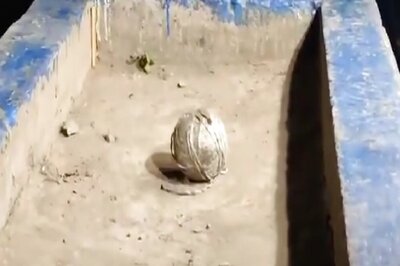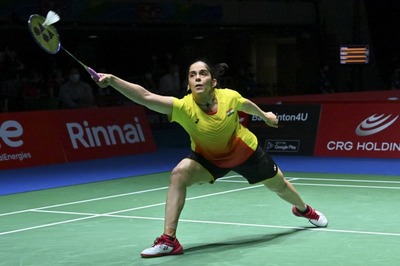
views
COVID-19 had impacted life worldwide across sectors. The impact of the same was also in the education sector, which had to adapt rapidly to the online method of learning and teaching. While accessibility to learning resources increased with widespread internet connectivity, gaps were created in the overall student learning outcomes, given the absence of practical lessons and in-person engagement for young learners.
The prolonged gap in classroom based teaching resulted in students often learning in silos and being unsupervised. As per a survey by Learning Spiral, over 70 per cent of students in India admitted to cheating in online exams, and some admitted to copying answers word-for-word without offering citations.
Also read| UP Board Exams 2023 Answer Sheets to be Stitched, Not Stapled to Curb Cheating in 10th, 12th Exam
While, as per a report in the National Public Radio (NPR), the number of academic misconduct cases rose to 1,077 during the 2020–21 school year, more than three times the previous year’s number recorded at Virginia Commonwealth University, USA. In another instance reported from the US, cases of misconduct more than doubled at the University of Georgia, and reported incidents of cheating were up by 50 per cent over the year before at Ohio State University.
What we are observing globally is a concerning trend that is antithetical to the principles of learning and has the potential to impact the growth of our future generations. Evidently, there is a need to rein in these inappropriate habits and further seed the concept of academic integrity with our learners.
Contract cheating
A malpractice that has gained momentum is contract cheating. It is the practice of outsourcing an academic project to a third-party or offering to purchase an already completed project or an assignment.
These are short-cuts that learners take, often inadvertently, without realising the longer term repercussions of their actions. Not only do these practices impact learner growth and impede the development of crucial life skills in them, they put the learner at the fringes of strict punitive action and even a likely expulsion from the course.
In India, several high-profile cases of unoriginal work have come to the spotlight over the past few years. Earlier this year, the Delhi High Court directed a leading institute to conclude its probe concerning allegations of plagiarism against two professors accused of using a student’s research proposals in order to obtain a Lok Sabha-sponsored fellowship.
In another instance, a recognised medical institute faced allegations of plagiarism regarding a report drafted under a special committee. As per news reports in September, the dean of the faculty of education at a well-known university was suspended temporarily after plagiarism was identified in his research thesis for the Doctor of Philosophy degree.
The above instances unfortunately exemplify the use of dishonest means to develop content in a fairly large measure within our academic institutions. However, with the National Education Policy (NEP) 2020 promulgating original thinking, ideation and innovation, educators and students would need to inculcate integrity in educational practices.
The question is how do we halt this growing menace of cheating and unoriginality and create a strong culture of academic integrity?
Fighting contract cheating and plagiarism
Awareness generation is probably the key here. Often, the lack of complete knowledge leads students and researchers to take help from sources that are not within justifiable boundaries. A simple thing such as asking a college senior to write an assignment or copying from another source and claiming it to be an original may seem like innocuous actions but are in fact grave mistakes.
Motivating students towards creating and submitting honest and original work can often be a difficult task as they are unable to foresee or understand the longer-term repercussions of their actions. Here the onus is on the educator to dispel any misconceptions and ensure that students understand the boundaries of misconduct.
At times, students may also be demotivated to pursue the assignment for lack of clarity about the course, subject or instructions. They may fear failure or lack confidence in their ability to finish the assignment as per the desired expectation of the educator. Here teachers could create a reciprocal learning environment that values engagement between instructors and learners, as also allows learners to work in pairs or groups. This can help to reduce learner anxiety and minimise instances of academic dishonesty.
Another reason why students might be motivated to cheat could be an issue with time management or a disorganised approach to assignment completion. Educators, in such instances, can create updated timelines to check up on students’ progress and ask for intermittent feedback from students about the assignment. Finally, a conscientious course design and transparency about the assessment process can also help students gain confidence and become less vulnerable to pressure.
The 21st century learners must understand that with the advent of technology in education, it is not difficult to identify plagiarised content. The absence of right context, inconsistent content structure, or obsolete data offered in the assignments are some easy ways to decipher copied content from what is original. Several progressive learning institutions worldwide are moving towards adoption of digital tools that support assessors with identifying original content, and continue to invest in working with their faculty to develop awareness on academic integrity.
— Authored by Chaitali Moitra, Turnitin’s Regional Director, South Asia
Read all the Latest Education News here




















Comments
0 comment